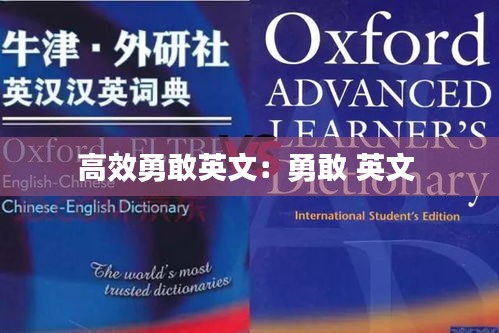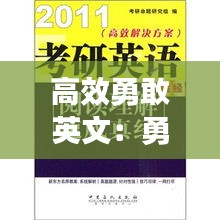Understanding Efficiency in English Communication
Efficiency in English communication is key to conveying ideas effectively and quickly. Whether in professional settings, academic environments, or personal interactions, being efficient in your language use can make a significant difference. To achieve this, it's important to understand the components that contribute to efficiency in English.
The Importance of Clarity
Clarity is the cornerstone of efficient communication. When speaking or writing in English, it's crucial to be clear and precise. Avoid using complex sentences or jargon that may confuse the listener or reader. Clarity ensures that your message is understood without the need for excessive explanation or clarification.
Using Active Voice
Active voice is a powerful tool in English writing and speaking. It makes sentences more direct and concise, which enhances efficiency. Instead of saying "The report was written by the team," which is in passive voice, say "The team wrote the report." Active voice not only makes the sentence stronger but also conveys confidence and authority.
Mastering Vocabulary
Having a broad vocabulary allows you to express yourself more effectively. Knowing synonyms and antonyms can help you avoid repetition and choose the most appropriate words for your message. Additionally, learning idiomatic expressions and colloquialisms can make your communication more engaging and relatable.
Effective Listening Skills
Efficiency in communication is not just about speaking; it also involves listening actively. By listening attentively, you can understand the needs and concerns of others, which can lead to more effective interactions. Active listening can also help you avoid misunderstandings and respond appropriately to different situations.
Practicing Conciseness
Conciseness is the art of expressing an idea with as few words as possible. It's essential to practice being concise, as it can save time and reduce the risk of miscommunication. When writing or speaking, ask yourself if every word is necessary. Often, you can achieve the same effect with fewer words, making your communication more efficient.
Adapting Your Communication Style
Efficient communication is not a one-size-fits-all approach. It's important to adapt your communication style based on the context and audience. For example, a formal business letter will have a different tone and structure than an informal email to a friend. Being adaptable allows you to communicate effectively in various situations.
Utilizing Technology and Resources
Modern technology offers numerous tools to enhance communication efficiency. From grammar and spell-checkers to translation services and collaborative platforms, technology can help you communicate more effectively. Utilizing these resources can save time and improve the quality of your communication.
Developing Confidence
Confidence is a key factor in effective communication. When you are confident in your English skills, you are more likely to communicate efficiently. Confidence comes from practice and experience. The more you communicate in English, the more comfortable and efficient you will become.
Continuous Improvement
Efficiency in English communication is a skill that requires continuous improvement. Seek feedback from others to identify areas for improvement. Read widely, listen to native speakers, and practice regularly. By constantly working on your skills, you will become more efficient in your English communication over time.
Conclusion
In conclusion, being efficient and brave in English communication is essential for success in various aspects of life. By focusing on clarity, using active voice, mastering vocabulary, developing listening skills, practicing conciseness, adapting your style, utilizing technology, developing confidence, and continuously improving, you can enhance your communication efficiency. Remember, effective communication is not just about what you say; it's about how you say it and how well your message is received.
转载请注明来自北京凯建昌盛工程技术有限公司,本文标题:《高效勇敢英文:勇敢 英文 》













 京ICP备19050683号-2
京ICP备19050683号-2
还没有评论,来说两句吧...